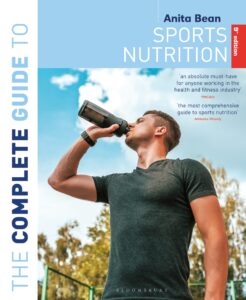What to Eat Before a Workout
Fuelling properly before a workout can help you train harder and keep going for longer, ensuring you perform at your best. Getting your pre-workout fuelling right will help avoid early fatigue, improve your performance, and ensure you have a more enjoyable workout.
Why is pre-workout nutrition important?
Most of the energy needed for your workout comes from your stored fat and carbohydrate (glycogen). Carbohydrate in the food that you’ve eaten in the days and hours before will have been converted into glycogen and stored in your muscles and liver. Food or drink consumed immediately before exercise will not be stored as glycogen but will influence the fuel mixture your muscles burn during your workout.
If you have carbohydrate before exercise, this will increase carbohydrate burning during exercise. It also means you’ll be able to exercise at a higher intensity for longer. The purpose of fuelling before exercise is to keep hunger at bay and maintain blood glucose. This will help delay the onset of fatigue and increase your endurance and performance.
What should you eat before exercise?
The amount and types of foods you should eat before exercise depend on the goals of your session, the intensity and duration of your workout or event and how much you have eaten the previous 24 hours.
Choose carbs: Your pre-workout meal should include foods or drinks rich in carbohydrate as this is the preferred fuel for your muscles. Good options include potatoes, oats, rice or pasta.
Add (a little) protein: Some protein and healthy (unsaturated) fat may be included but in relatively smaller amounts as they take longer to digest. Protein and fat slow the digestion and absorption of carbohydrate so the closer your meal is to your workout, the less protein or fat you should eat.
Carb up before a long event: If you’re doing an endurance event longer than 90 minutes, you’ll need to increase your carbohydrate intake 24 – 48 hours beforehand. This will top up your glycogen stores and ensure you have enough energy to go the distance.
Avoid too much fibre: If you are prone to gut problems, avoid high-fibre foods, such as wholegrain cereals and legumes, within an hour of exercise as this may have unwanted effects. Instead, opt for low-fibre, high-carbohydrate foods, such as bananas or sports drinks.
When is the best time to eat before a workout?
The size of your meal depends on the time you have available to digest it. Eating a meal too close to exercise may result in gut problems as the blood supply is shunted away from the gut to the muscles. On the other hand, leaving too long a gap means you may experience early fatigue as glycogen stores get depleted.
The American College of Sports Medicine recommends consuming 1–4 g carbohydrate /kg body weight (BW) in the 1–4 hours before exercise. As a rule of thumb, the closer your workout or race, the lower the amount of carbohydrate should be. Aim to consume 1g carbs/ kg BW 1 hour before exercise, 2g/ kg BW if 2 hours before exercise, 3g / kg BW if 3 hours before exercise and 4g/ kg BW if 4 hours before exercise.
Everyone’s body reacts differently to different foods so experiment with what you’re eating and the timings to find what works best for you. This is particularly important if you’re training for a race. Use your long workouts to rehearse your fuelling plan to make sure there are no digestive surprises on race day.
If you have 3 – 4 hours before your workout: go ahead and have a balanced meal consisting of carbohydrate, protein and fat. Options include rice with beans (or chicken), tofu stir-fry with noodles, or pasta with a tomato-based sauce and cheese.
If you have 1 – 2 hours before your workout: opt for a snack comprising mainly carbohydrate with smaller amounts of protein or fat. Examples include a bagel with peanut butter and banana, or a bowl of porridge made with milk and topped with fruit.
If you have less than one hour before your workout: eat an easy-to-digest snack or a drink such as a banana, sports drink or smoothie to promote rapid stomach emptying.
Summary
- Fuelling before exercise will help delay the onset of fatigue and enhance your endurance and performance.
- Your pre-workout meal should include carbohydrate, with smaller amounts of protein and fat, depending how close it is to your workout.
- If you are prone to gut problems, avoid too much fibre close to exercising.
- It is recommended to consume 1–4 g carbohydrate /kg BW in the 1–4 hours before exercise.
- Experiment to find your ideal pre-workout food.
 The Complete Guide to Sports Nutrition, ninth edition is the definitive practical handbook for anyone wanting a performance advantage. This fully updated and revised edition includes guidance on:
The Complete Guide to Sports Nutrition, ninth edition is the definitive practical handbook for anyone wanting a performance advantage. This fully updated and revised edition includes guidance on:
- maximising endurance, strength, performance and recovery
- the most popular sports supplements
- relative energy deficiency in sport (RED-S)
- hydration strategies
- nutrition for masters athletes, young athletes and plant-based athletes
- nutrition preparation for competition
- gut health and how to avoid gut problems during exercise
Tags: pre-workout nutrition
